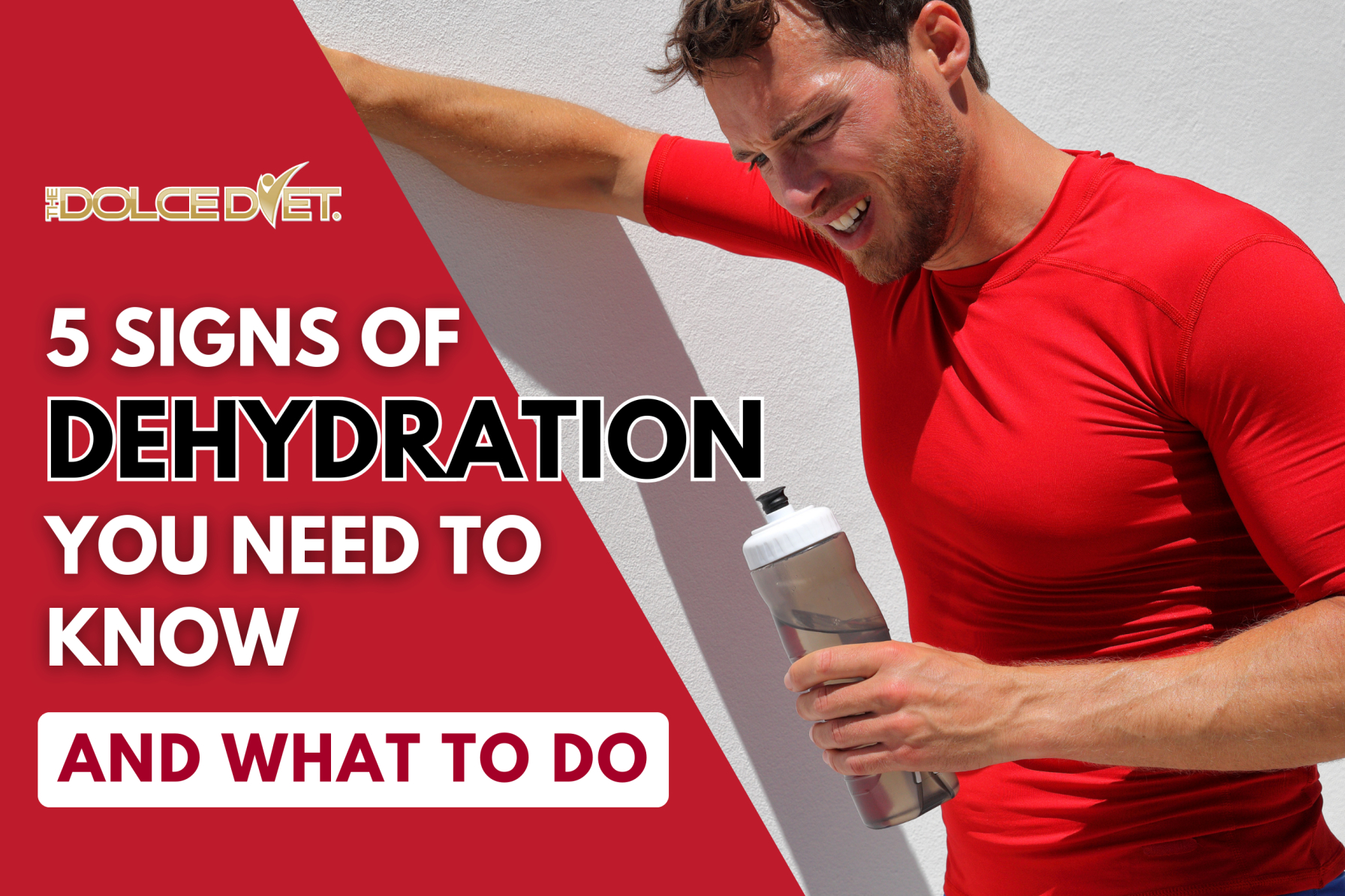5 Signs Of Dehydration You Need To Know (And What To Do)
Did you know your body can give subtle signs of thirst before you actually feel it? These overlooked hints are signs of dehydration, which we’ll explore in today’s blog post.
Dehydration might not always be at the forefront of your mind, but understanding the signs and acting on them can make a significant difference in your health.
In this blog post, we’ll explore the 5 signs of dehydration. By the end, you’ll get a free resource to help you recognize these signs, take action, and maintain proper hydration.
Ready? Let’s start with the basics…
Understanding Dehydration Signs & Symptoms
Dehydration occurs when your body loses more fluids than it takes in.
We already know that water is vital for various bodily functions, from regulating temperature to aiding digestion. But what happens when you don’t get enough water?
Your body slowly loses its ability to perform at its best, and this can have serious negative consequences for your health.
Those consequences are basically the signs and symptoms of dehydration.
And here are the 5 key signs & symptoms you need to know…
1. Bad Breath
One of the earliest signs of dehydration is bad breath. (Surprising, isn’t it?)
When you don’t drink enough water, your body doesn’t produce sufficient saliva, which can lead to bacterial growth in your mouth.
Saliva acts as a natural antibacterial agent, and when it’s in short supply, bacteria can flourish.
As a result, you may notice an unpleasant odor when you exhale.
2. Muscle Cramps
Ever had those painful muscle cramps?
Dehydration, especially with depleted electrolyte levels, can cause those uncomfortable spasms.
But don’t just focus on water; it’s about replenishing your electrolytes.
These electrolytes play a vital role in transmitting electrical signals to your muscles — and when they’re depleted due to dehydration, your muscles are more prone to cramping.
3. Dry Skin
Think you can’t get dehydrated in cold weather? Think again.
Dehydration can dry out your skin, even when you’re not sweating. As you become more dehydrated, your blood volume decreases, leading to dry, flaky skin.
It’s worth noting that you can get dehydrated even in cold weather, and the signs might not be as obvious as in hot weather where sweating is more apparent.
4. Headaches
Ever heard of “Dehydration Headaches”? It’s basically the aches you feel in your head when you’re not properly hydrated.
Yes, dehydration can affect even your head. Why?
Because your brain is surrounded by fluid, and when you’re dehydrated, you lose some of that fluid volume.
Consequently, your brain can push against different parts of your skull, resulting in headaches.
However, staying hydrated will help you keep those aches at bay.
5. Fever
You may be wondering, “Fever? Really? Can dehydration cause fever?”
Absolutely.
In severe cases of dehydration, you could experience a high fever.
Along with the fever, you may also experience chills, as fluid plays a significant role in regulating body temperature.
Now the question is…
How do you ensure proper hydration to prevent both mild and severe symptoms of dehydration?
You’ll find the answer in the video below
Watch the video below and learn practical tips to prevent the 5 signs of dehydration outlined above.
Now for your free resource, click the link below to download your guide to staying properly hydrated all day, every day.

Finally…
Remember that the signs of dehydration are your body’s way of communicating its needs.
By recognizing and addressing these signs promptly, you can prevent the negative effects of dehydration and maintain your overall well-being.
As we experience the changes in weather, make it a point to prioritize your hydration.
Keep an eye out for the signs we’ve discussed, and take action to stay properly hydrated. Your body will thank you with improved performance and better health.
Don’t forget to watch the video “5 Signs Of Dehydration You Need To Know (And What To Do)” and download the free resource to learn the right way to maintain healthy levels of hydration.
You’ve got this, and I’m here to support you every step of the way.
As always, if you found this post helpful, share it with anyone you know would need it.
Enjoy,
Mike Dolce




